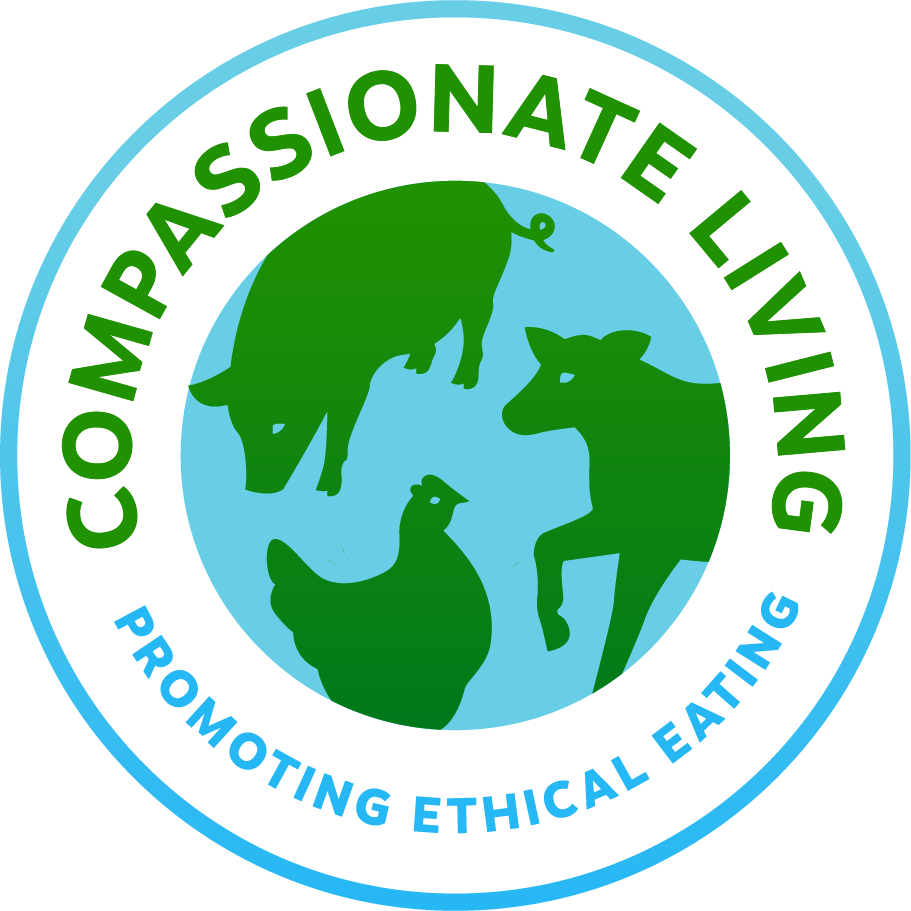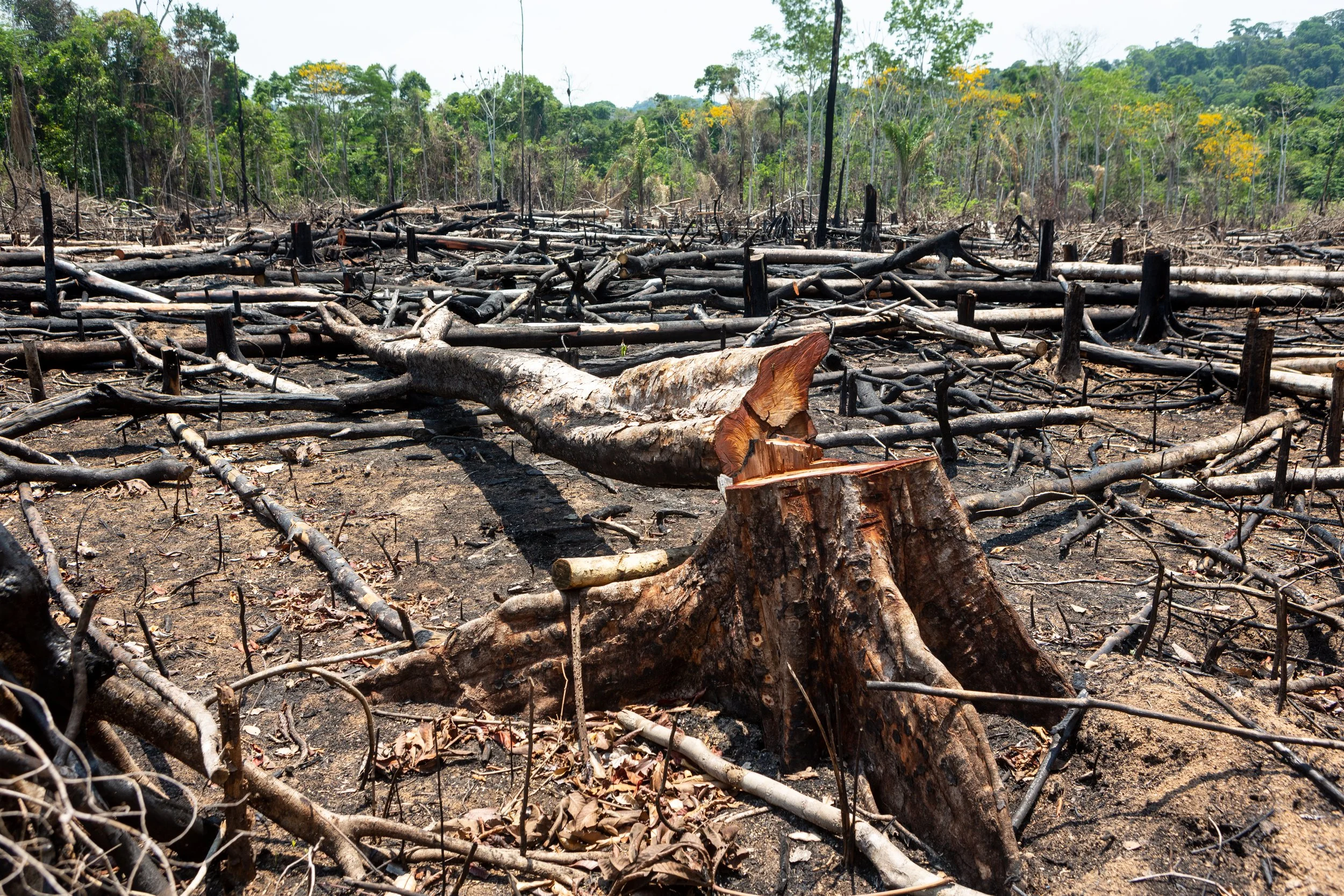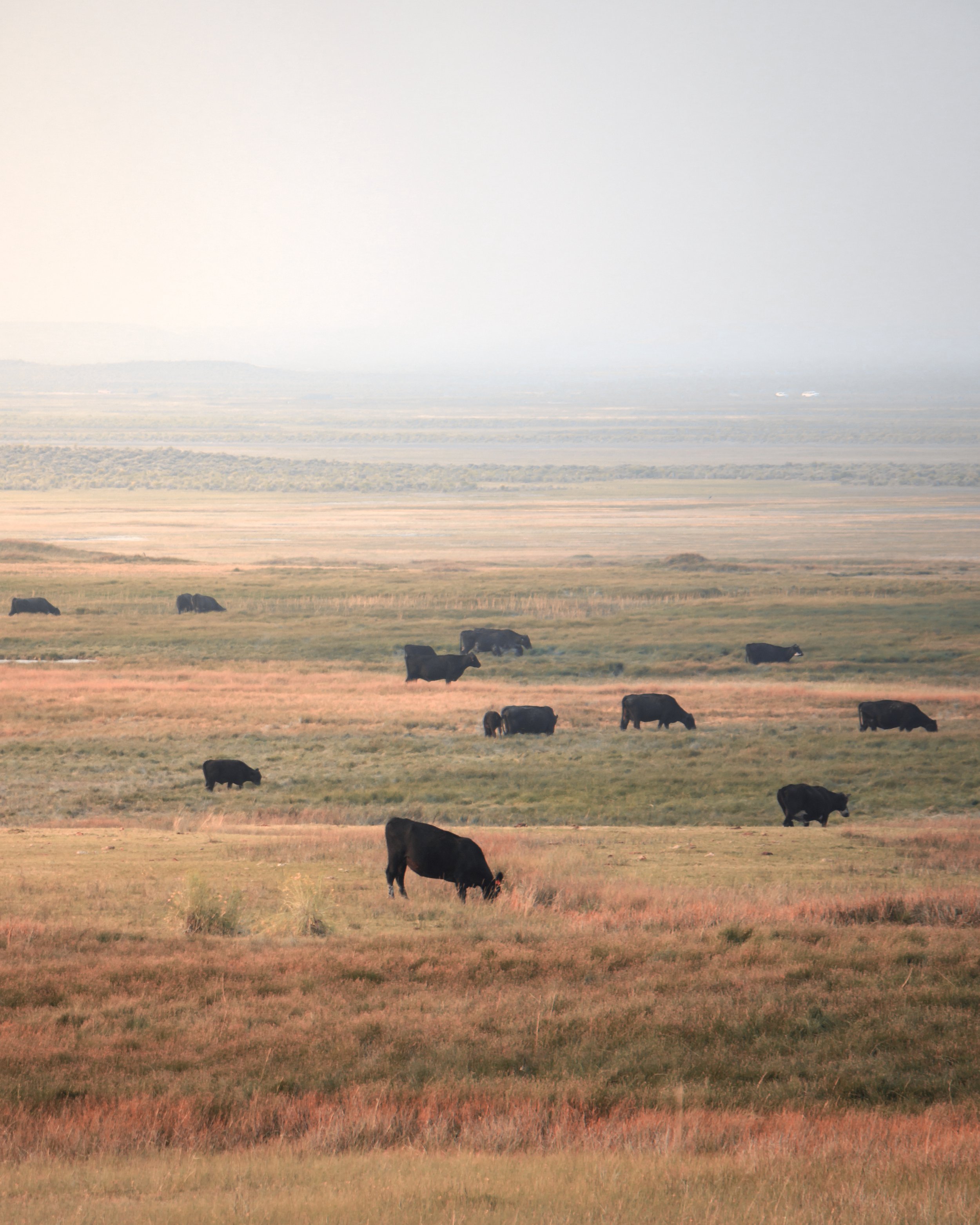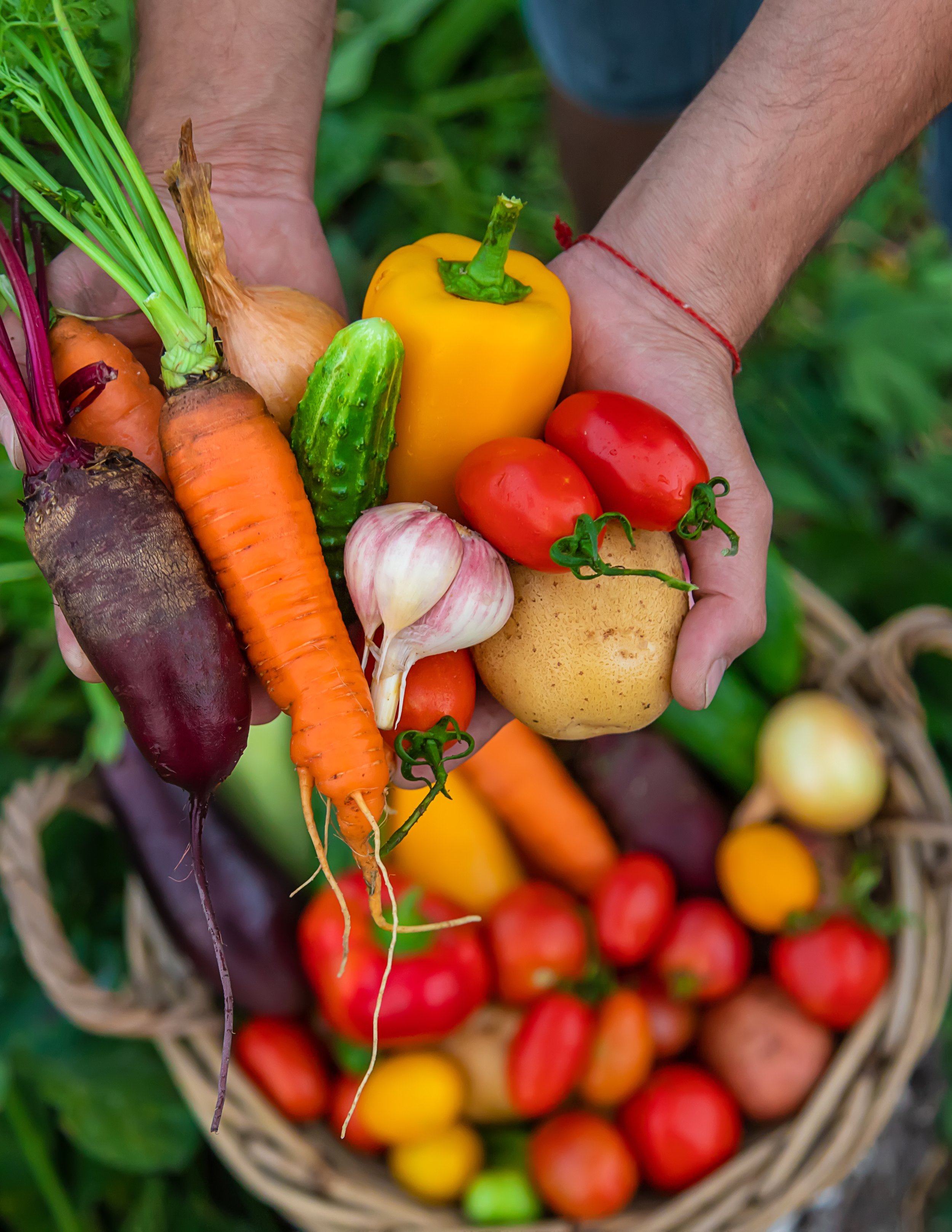
Environment
Our food choices have dramatic consequences for the environment. Reducing or eliminating the consumption of animal products is one of the most powerful ways an individual can reduce his or her carbon footprint. What we put into our shopping bags at the grocery store actually has more environmental impact than whether we bring reusable shopping bags or drive a hybrid to the store.
Animal agriculture is responsible for many of the world’s most serious environmental problems including climate disruption, water use and pollution, energy consumption, deforestation, loss of biodiversity and species, as well as the detrimental impact of fishing on our oceans.
Climate Change
Animal agriculture is a significant contributor to climate disruption.
The report Livestock and Climate Change, co-authored by an environmental adviser for the World Bank for 23 years, found that previous calculations of the impact of farming animals on climate change had misjudged and ignored certain emissions sources, and had assigned emissions they deemed to be livestock-related to the wrong sectors. The authors bring to light these inconsistencies through analyses of livestock respiration, land use, and methane emissions.
Based on the research, this study conclude that replacing animal products with plant-based alternatives would be the best strategy for reversing climate change. The report states, “This approach would have far more rapid effects on GHG emissions and their atmospheric concentrations — and thus, on the rate the climate is warming — than actions to replace fossil fuels with renewable energy.” They argue that food producers should mount a major campaign to promote the consumption of plant-based foods, including meat alternatives.
Another study by the United Nations Food and Agriculture called for urgent action regarding the impact of animal agriculture. The report said, “The livestock sector emerges as one of the top two or three most significant contributors to the most serious environmental problems, at every scale from local to global.
Livestock’s contribution to environmental problems is on a massive scale, and its potential contribution to their solution is equally large. The impact is so significant that it needs to be addressed with urgency.”
The food and drink an average person consumes is the single largest determining factor of one’s overall ecological footprint. Knowing this, it’s easy and affordable to make important improvements in your own global impact.
You don’t need to buy a hybrid or get solar panels to make the biggest impact. Reducing or eliminating the consumption of animal products is one of the most powerful ways an individual can stop harming the environment. The next time you’re assessing a food’s ecological footprint, be sure to remember: organic is important, local is good, but vegan is best.
A plant-based diet is by far the most ecological dietary choice we can make.
A study by the University of Chicago found that consuming no animal products is 50% more effective at fighting global warming than switching from a standard car to a hybrid.
For more, watch the film Cowspiracy
Mass soybean harvesting for animal feed at a farm in the state of Mato Grosso, Brazil.
Deforestation
For every one acre of forest cleared for parking lots, shopping malls, etc. 7 acres are cut for grazing livestock and growing the food to feed them.
Over 260 million acres could be rewilded if the U.S. were to stop growing the crops to feed livestock.
It is estimated that one acre of trees are preserved each year by every individual who switches to a completely plant-based diet.
Water
Over half the total amount of fresh water consumed in the US goes to irrigate land growing feed for farmed animals and to water them. It takes less water to produce 1 year’s food for a completely plant-based diet, than to produce 1 month’s food for a diet with animal products. Animal farms have the waste problem of a small city yet they have no sewage systems or wastewater management and most becomes runoff into our ground water and rivers. This nitrogen-rich waste causes bacteria levels in water to rise, causing algae to thrive and fish to die.
Aerial view of large scale dairy farm with accumulation of animal waste.
2,500 gallons of water yields:
1 pound of meat, or
50 pounds of fruit, or
100 pounds of potatoes.
In terms of an individual’s impact on the environment:
Eating meat is like driving an SUV.
A vegetarian diet is like driving a mid-sized sedan.
A vegan diet is like riding a bike.
Aerial view of deforestation in the amazon rainforest. Trees cut and burned on illegally to open land for agriculture and livestock in the Jamanxim National Forest, Para, Brazil.
Quick Facts
Pounds of grain needed to produce enough meat and other animal products to feed a person on a meat-based diet for a year: 2,000.
Pounds of grain needed to feed a person for a year if the grain is eaten directly: 400.
Percentage of:
Soybean crops grown to feed livestock in the US: 90%
Corn crops grown to feed livestock in the US: 80%
All grains grown to feed livestock in the US: 70%
Number of additional people who could be fed if all grain grown in the US for livestock was used to feed people: 800 million (David Pimentel, Professor of Entomology, Cornell University)
Amount of water needed to produce one pound of beef: approx. 1581 gallons
Amount of water needed to produce one pound of wheat: 102 gallons
(A.Y. Hoekstra and A.K. Chapagain, “Water Footprints of Nations,” 2006)
A vegan diet results in eliminating 1.5 tons of CO2 emissions annually, or eight pounds per day, when compared with a non-vegan diet (Eshel G. and Martin P., Energy and Global Warming, 2006)
If everyone in the U.S. ate no meat for one day a week, it would be the equivalent of taking 5 million cars off the road.
Water Saved By a Plant-Based Diet
Per Day–
Meat-Centered Diet = 4,000 gallons of water
Vegetarian = 1,200 gallons of water
Vegan = 300 gallons of water
2,500 gallons of water yields–
100 pounds of potatoes
50 pounds of fruit
1 pound of meat
(Presentation to the American Association For the Advancement of Science, G. Borgstrom)
If everyone went vegetarian just for one day, the US would save:
100 billion gallons of water, enough to supply all the homes in New England for almost 4 months
1.5 billion pounds of crops otherwise fed to livestock, enough to feed the state of New Mexico for more than a year
70 million gallons of gas, enough to fuel all the cars of Canada and Mexico combined with plenty to spare
3 million acres of land, an area more than twice the size of Delaware
33 tons of antibiotics
If everyone went vegetarian just for one day, the US would prevent:
Greenhouse gas emissions equivalent to 1.2 million tons of CO2, as much as produced by all of France
3 million tons of soil erosion and $70 million in resulting economic damages
4.5 million tons of animal excrement
Almost 7 tons of ammonia emissions
(Physicist Noam Mohr, New York University Polytechnic Institute)









